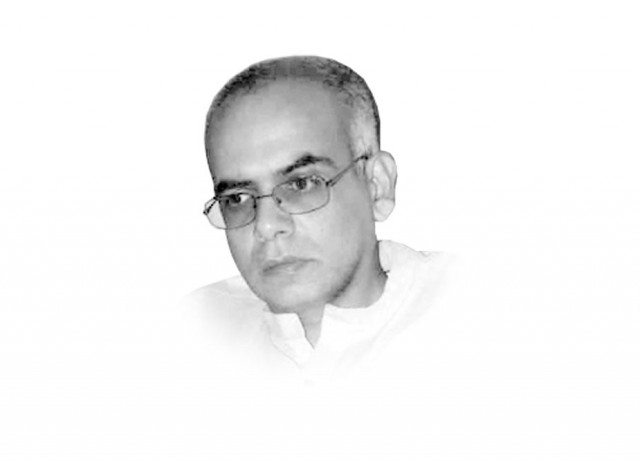Hurdles confronting the BISP
Revamping the BISP does pose serious challenges in terms of addressing the plight of poor Pakistanis.

The writer is a development consultant and holds a PhD in Development Anthropology from Melbourne University syed.ali@tribune.com.pk
The BISP was initiated in 2008 with an initial allocation of Rs0.34 billion, aimed at covering 3.5 million families. Over the past five years, its outreach is stated to have been extended to 5.5 million families. The current coverage still falls short of extending benefits to another 2.1 million potential beneficiaries, who do not yet possess national identity cards. While the current government also allocated Rs75 billion for BISP during the current financial year, it has been expressing major concerns regarding the transparency and efficiency of the programme.
It is noteworthy that the current government has decided to revamp the BISP rather than disband it completely and initiate another similar effort from scratch. However, revamping the BISP does pose serious challenges in terms of addressing the plight of poor Pakistanis.
At a broader level, such challenges pertain to the underlying justification for launching social safety programmes, which are often criticised as ‘sugar-coating’ on the bitter pill of curbing public spending and undertaking other anti-poor economic reforms within developing countries under pressure from international lending agencies.
Another set of concerns relates to design and implementation flaws within the BISP itself. The BISP is designed to primarily provide beneficiary families cash assistance of Rs1,200 a month to help them meet household expenditures. Apart from this monthly stipend, the BISP has initiated tokenistic efforts to bring poor people out of poverty by providing them long-term interest-free loans, vocational and technical training, as well as health and life insurance coverage. The BISP’s Waseela-e-Rozgar scheme, for instance, claims to have trained 50,000 people. But there is no follow-up on what these people have done with their skills. Another Waseela-e-Haq scheme, under the BISP, extends financial support to a selected number of beneficiaries to start their own businesses. Yet, the ability of limited capacity building and financial support, which is being provided to a small percentage of overall BISP beneficiaries to help the poor break free from the vicious cycle of deprivation, remains questionable.
Even in terms of implementation, serious allegations of irregularities, mismanagement and corruption have also plagued the BISP throughout its existence. Amidst accusations of political patronage when politicians were tasked with identifying BISP beneficiaries, the World Bank favoured NGOs were brought in to develop poverty scorecards to identify more deserving candidates for the scheme. Yet, two recent government audit reports have pointed out payments still being made to ineligible beneficiaries. Moreover, government auditors have raised objections concerning billions of rupees wasted by the previous administration to advertise accomplishments of the BISP rather than using that money to directly benefit the poor.
The new BISP chairman has unveiled plans to provide skilled labour to meet the demands of the Gulf labour market through the BISP, and in turn, enhance the flow of remittances to Pakistan by combining the aforementioned Waseela-e-Rozgar and Waseela-e-Haq schemes. While this is an ambitious and an apparently more sustainable programme design for the BISP, the devil lies in the details. How many of the BISP beneficiaries will be able to avail of such an opportunity remains to be seen, as does the ability of the BISP (and its implementation partners) to effectively train and help poor people obtain good jobs in Gulf countries.
Published in The Express Tribune, January 10th, 2014.
Like Opinion & Editorial on Facebook, follow @ETOpEd on Twitter to receive all updates on all our daily pieces.

















COMMENTS
Comments are moderated and generally will be posted if they are on-topic and not abusive.
For more information, please see our Comments FAQ